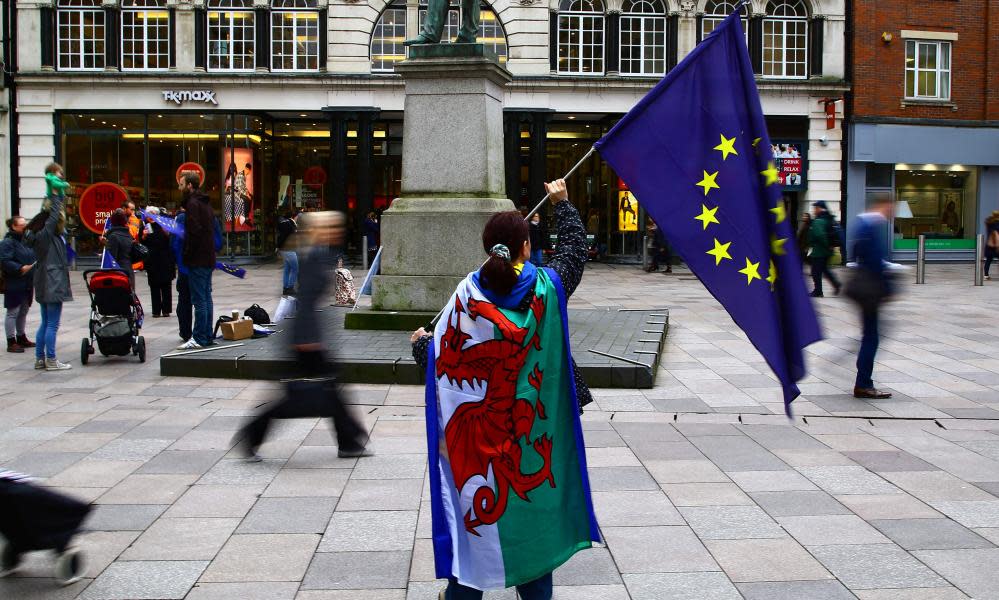May wants security, free trade, liberal values: just what we’re throwing away | Jonathan Freedland

Nothing conveyed the madness of Brexit like the implementing of it. Theresa May’s speech to the Commons delighted the anti-EU warriors – of course it did. The likes of Victoria Borwick, the Kensington MP who wore an alice band in union jack colours for the occasion, or Bill Cash and John Redwood, for decades dismissed as backbench eccentrics for demanding a British departure from the European Union, were ecstatic at the prime minister’s announcement of what they saw as Britain’s day of liberation. They bellowed their joy when the PM declared that article 50 had been triggered, and: “This is a historic moment from which there will be no turning back.”
They might have been hoping for some stirring rhetoric to match, a rousing reassertion of the case for Brexit. But in her speech and in her letter to Donald Tusk, May – no doubt inadvertently – reminded the country of something else: the value of what has just been lost.
“Europe’s security is more fragile today than at any time since the end of the cold war,” she said, apparently deploying one of the remainers’ strongest arguments: that at a time of global peril, now is not the time to destabilise an institution that has helped maintain the postwar peace.
She appeared to warn too that in the age of Donald Trump it was folly for Britain to turn its back on the world’s largest single market. As she wrote to Tusk: “At a time when the growth of global trade is slowing, and there are signs that protectionist instincts are on the rise in many parts of the world, Europe has a responsibility to stand up for free trade in the interest of all our citizens.”
She went further: “Perhaps now more than ever the world needs the liberal, democratic values of Europe – values that the UK shares.” Close your eyes and it might have been 1972, with May making the case for Britain joining the European Economic Community.
Of course, she was saying all this in order to prove to Brussels that Britain is not hostile to the European enterprise: that, on the contrary, it wants a “deep and special partnership” with the 27 EU states that will be left behind – a phrase surely chosen to convey a bond even closer than the “special relationship” with the United States.
But the unsettling effect, as May set out aspiration after aspiration for the post-Brexit future, was not only to remind us that she herself had backed the cause of remain – however tepidly – but that the ideal state of affairs she sought closely resembled the world we are about to throw away.
The free trade, the close cooperation on security, the collective stance for liberal and democratic values, the soft, almost invisible, border between the Republic of Ireland and the north – these are the things she wanted. Yet the unavoidable truth is that this is what Britain already had and could have kept on having – but which it has chosen to discard.
And for what? The Daily Telegraph hailed the liberation with a feature on the EU rules we are now free to shake off. And what were these dreadful shackles that turned us into a slave nation, thirsting for our freedom? The Telegraph cited the rules that deny Britons bendy bananas, incandescent lightbulbs and their choice of vacuum cleaners.
Heroically, May talked of a “brighter future” for this country – imagining that Brexit was set to turn us into a secure, prosperous, more tolerant land. It sounded like a fantasy. The better place seemed to be the one she was leading us away from, the one we are leaving behind.

 Yahoo News
Yahoo News 
